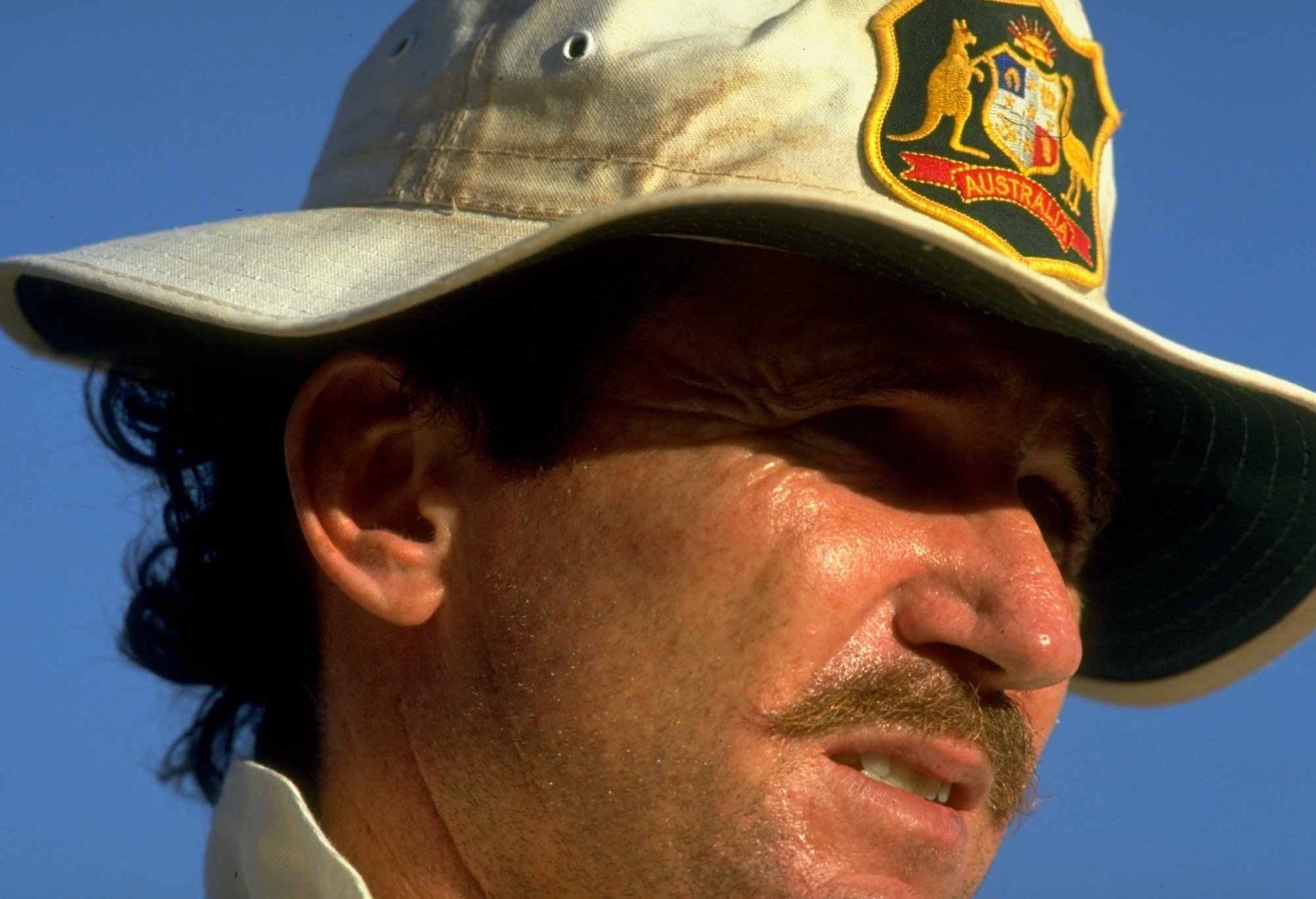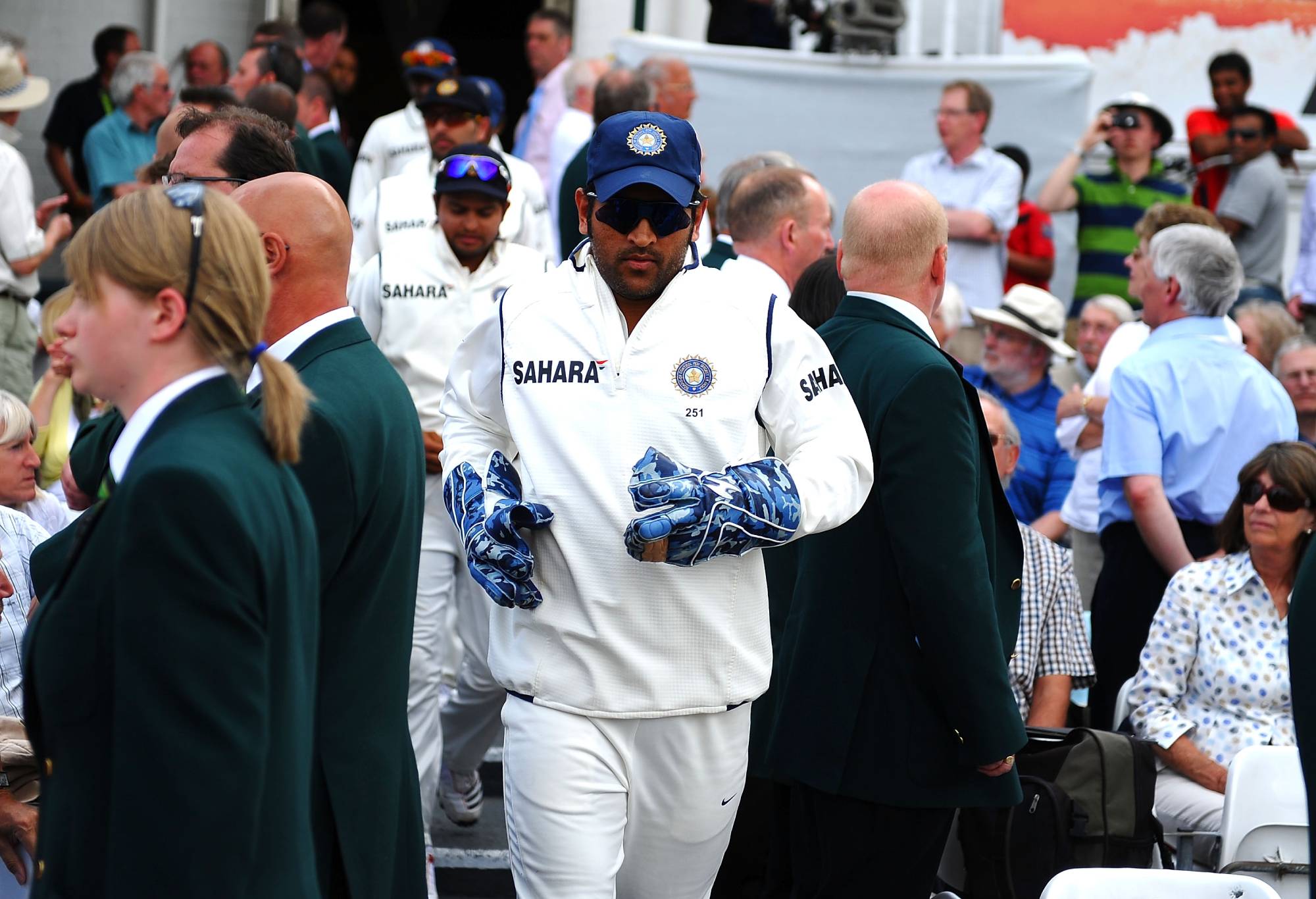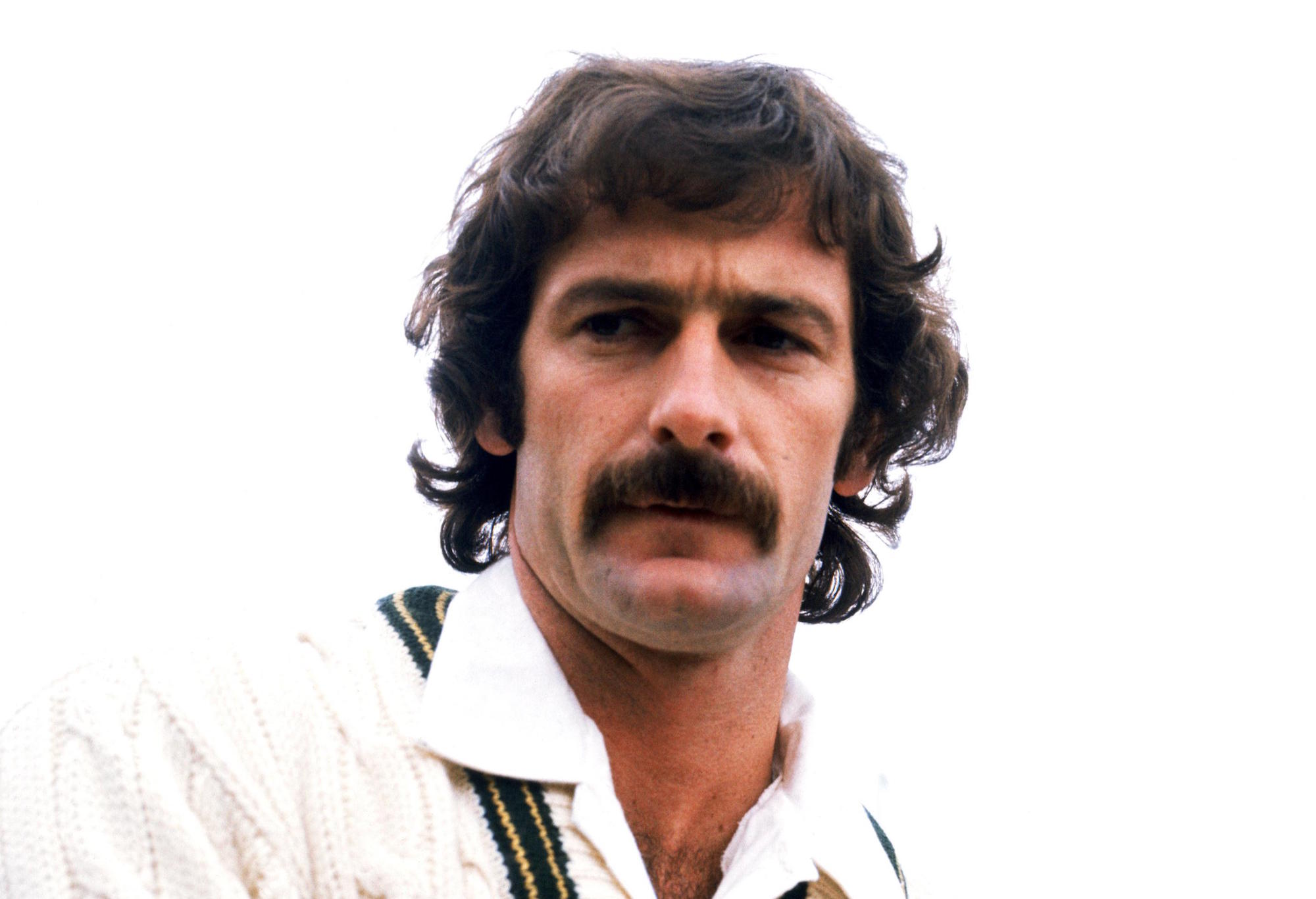Another month, another team. This one is arguably stronger than the June-born Team of the month. Some all-time greats have again missed out on selection, simply as a result of having been born in the wrong month.
It boasts an impressive pace trio and the sport’s best-ever all-rounder. The side is also modern, with all but one of its members having played during the past 50 years. It is quite cosmopolitan as well, with six nations represented.
1. Sunil Gavaskar (India, born 10 July 1949)
125 Tests, 1971-1987, 10,122 runs at 51.12, 34 centuries
Gavaskar is one of the finest opening batsmen of all time. His strengths included superb technique and great powers of concentration.
Cricinfo named him in an all-time India XI in 2010. It also recently included two performances by him among the 100 best innings of all time. At The Oval in 1979, he scored 221 as India almost achieved a 438-run victory target. And against the West Indies in Chennai in 1983/84, he scored an undefeated 236.
During his debut series in the West Indies in 1971/72 he scored 774 runs with four centuries, including 124 and 220 in Port-of-Spain. On a second visit in 1975/76 he averaged 55.71 with two more centuries. And when he led India at home against the same opponent in 1978/79, he amassed 732 runs with a further four centuries.
2. Barry Richards (South Africa, born 21 July 1945)
Four Tests, 1970-70, 508 runs at 72.57, two centuries
Richards was an outstanding opening batsman with a classical technique, whose entire Test career sadly lasted just six weeks. Many of his greatest achievements were instead for Hampshire, South Australia and Natal, and in World Series Cricket. In 2010 he was named in Cricinfo’s all-time South Africa XI. Don Bradman rated him the equal of Jack Hobbs.
In his second Test he scored 140 from just 164 deliveries against Australia in Durban, while in his last he amassed 81 and 126 against the same opponent in Port Elizabeth. For South Australia he scored 325 in a day against Western Australia at the WACA in 1970/71, including 137 runs in one session. For the WSC’s World XI he scored 207 against the Australia XI in Perth, dominating a partnership with Viv Richards.
3. WG Grace (England, born 18 July 1848, vice-captain)
22 Tests, 1880-1899, 1098 runs at 32.29, two centuries, nine wickets at 26.22
Grace is the most influential cricketer of all time. He was named in Wisden’s all-time World XI in 2013, and one of its “Six Giants of the Wisden Century” in 1963. He revolutionised the way the sport was played, and more than any other person made it popular.
He hit the ball hard off both front and back foot, enjoyed facing fast bowling, and bowled skilfully with a round-arm action. He was tall, and as a slim young man was a first-rate hurdler and runner. Despite his amateur status, he unashamedly earned far more from the game than any professional.
Grace’s Test statistics don’t do him justice, as he debuted aged 32 and played his last match at 50. He toured Australia before Test cricket commenced, but only once thereafter at the age of 43. His centuries were 152 at The Oval on debut, and 170 at the same ground in 1886. In a first-class career lasting 44 years, he scored 54,211 runs at 39.45 and took 2809 wickets at 18.14, on poor pitches by modern standards.
More topically, at The Oval in 1882 he ran out Sammy Jones who was patting down the pitch after taking an easy single. An inspired Australia won the game by seven runs, and The Sporting Times’ mock obituary prompted the Ashes trophy’s creation.

Allan Border. (Credit: Ben Radford/Allsport via Getty Images)
4. Graham Gooch (England, born 23 July 1953)
118 Tests, 1975-1995, 8900 runs at 42.58, 20 centuries
Gooch was a top-order batsman and occasional slow-medium bowler. He scored more runs in first-class and List A cricket combined, than did Jack Hobbs as first-class cricket’s most prolific batsman. His career was interrupted by a three-year ban for leading a rebel tour to South Africa.
His finest innings was an undefeated 154 in a team total of 252, against the West Indies at Headingley in 1991. Cricinfo recently rated it the tenth best innings ever played. In 26 matches against them he averaged 44.83, with five centuries. Against India at Lord’s in 1990 he scored 333 and 123, a record that still stands for the most runs made in a single match.
5. Gary Sobers (West Indies, born 28 July 1936)
93 Tests, 1954-1974, 8032 runs at 57.78, 26 centuries, 235 wickets at 34.03, 109 catches
Sobers is the greatest all-rounder to have played the game. As well as being a free-scoring left-handed batsman and brilliant fieldsman, he was capable of bowling left-armed fast-medium, wrist-spin and finger-spin.
In 2010 he was named in Cricinfo’s all-time World XI and in 2013 was named in Wisden’s all-time World XI as well. His peak ICC batting ranking in 1967 is the seventh highest of all time, and his all-rounder ranking in the same year is the highest.
His innings of 365 not out against Pakistan in Kingston in 1957/58 was his first Test century, and no-one else has scored a triple-century at a younger age. In the following match in Georgetown, he added a pair of centuries. Other highlights included scoring 254 for a World XI against Australia at the MCG in 1971/72.
6. Allan Border (Australia, born 27 July 1955)
156 Tests, 1979-1994, 11,174 runs at 50.56, 27 centuries, 39 wickets at 39.10
Border was a gritty left-handed batsman, useful left-arm orthodox spin bowler, and outstanding fieldsman. Cricinfo named him in an all-time Australia XI in 2010. It also recently included two performances by him among the 100 best innings of all time. At Lord’s in 1985, he scored a match-winning 196. And against India at the MCG in 1985/86, he scored a match-saving 163.
He averaged more than 50.00 in each of England, India, New Zealand, Pakistan and the West Indies. Arguably his finest match performance was innings of 98 and 100, both undefeated, in Port-of-Spain in 1983/84. With the ball, his highlight was a match-winning 7/46 and 4/50 against the West Indies at the SCG in 1988/89.
7. MS Dhoni (India, born 7 July 1981, captain)
90 Tests, 2005-2014, 4876 runs at 38.09, six centuries, 256 catches, 38 stumpings
Dhoni is a wicketkeeper-batsman still playing in the IPL. He led his country 60 times for 27 wins, as well as World Cup titles in the 50-over and Twenty20 formats. In 2010 he was named in Cricinfo’s all-time India XI.
Only four wicketkeepers have dismissed more batsmen, only two have effected more stumpings, and none have led a side more often. His finest innings was one of 224 in Chennai in 2012/13 to inspire victory over Australia. It is the third-highest score ever made by a gloveman.
8. Shaun Pollock (South Africa, born 16 July 1973)
108 Tests, 1995-2008, 3781 runs at 32.31, two centuries, 421 wickets at 23.11
Pollock is one of South Africa’s many great all-rounders. He was the first player from that nation to take 400 wickets, and formed an imposing attack with Allan Donald. He was capable of considerable seam movement, at high pace and with great accuracy.
In 2010 he was named in Cricinfo’s all-time South Africa XI. His peak ICC bowling ranking in 1999 is the twelfth best of all time, while his peak all-rounder ranking in 2003 is the thirteenth highest.
His bowling highlights included an innings return of 7/87 from 41 overs in blazing heat in Adelaide in 1997/98, and match figures of 10/147 against India in Bloemfontein in 2001/02. Each of his centuries came from number nine in the order, including 111 from just 106 deliveries against Sri Lanka in Centurion in 2000/01.

MS Dhoni. (Photo by Laurence Griffiths/Getty Images)
9. Richard Hadlee (New Zealand, born 3 July 1951)
86 Tests, 1973-1990, 3124 runs at 27.16, two centuries, 431 wickets at 22.29
Hadlee is his nation’s finest cricketer, and was named in Cricinfo’s all-time New Zealand XI in 2010. His bowling featured pace, bounce and movement, and he was the first player to take 400 wickets. Only two other bowlers have taken five wickets in an innings more times. His aggressive left-handed batting was often effective.
In the 22 games that New Zealand won with him in its side, he took a Barnes-esque 173 wickets at 13.06. He took ten wickets in a match on nine occasions, headlined by 9/52 and 6/71 in Brisbane in 1985/86, followed by 5/65 and 6/90 in Perth.
His peak ICC bowling ranking in 1985 is the twelfth best of all time, while his peak all-rounder ranking in 1987 is the sixteenth highest. His greatest all-round performances included one against England in Christchurch in 1983/84, which inspired an innings victory with 99 runs from 81 deliveries followed by 3/16 and 5/28.
10. Harbhajan Singh (India, born 3 July 1980)
103 Tests, 1998-2015, 417 wickets at 32.46
Harbhajan was a highly-skilled off-spin bowler who generated significant bounce and was also capable of turning the ball in the opposite direction. He and Anil Kumble formed a potent combination.
His career highlight was against Australia in 2000/01, taking 32 wickets at 17.03 from just three games. That tally included 13/196 and 15/217 in consecutive matches, in Kolkata and Chennai respectively.
11. Dennis Lillee (Australia, born 18 July 1949)
70 Tests, 1971-1984, 355 wickets at 23.92
Lillee was one of Australia’s greatest and most intimidating bowlers, both technically skilled and genuinely fast. In 2010 he was named in Cricinfo’s all-time World XI. He was also named by Cricket Australia in its Test Team of the Century.
He formed outstanding partnerships with wicketkeeper Rod Marsh and paceman Jeff Thomson, averaged more than five wickets per game, and took ten wickets in a match seven times. His Test career was interrupted by a serious back injury at a young age, and later by World Series Cricket.
His match-winning performances included 5/58 and 5/123 at The Oval in 1972, 6/26 and 5/139 in the Centenary Test at the MCG in 1976/77, and 7/83 and 3/44 against the West Indies at the MCG in 1981/82.

Dennis Lillee. (Photo by S&G/PA Images via Getty Images)
Honourable mentions
Charles Bannerman, Bill Brown, Jim Higgs, Peter McAlister, Stan McCabe, Ashley Mallett, Keith Stackpole (Aus), Gubby Allen, James Anderson, Alec Bedser, Ken Farnes, Maurice Leyland, Tony Lock, Bob Taylor (Eng), Chandu Borde, Saurav Ganguly (Ind), Trent Boult, Bruce Taylor, BJ Watling (NZ), Zaheer Abbas, Wasim Raja (Pak), Jock Cameron, Roy McLean, Makhaya Ntini, Faf du Plessis, Clive Rice, Eric Rowan (SA), Hashan Tillakaratne (SL), Larry Gomes (WI).
Captain Dhoni is one of seven national skippers in this side. The wily Grace will serve as his deputy despite having retired more than 50 years before any of his teammates debuted. If things go too smoothly the July-born Peter McAlister can step in as Chairman of Selectors and manager/treasurer, and even pick himself.
The batting has great depth, from openers Gavaskar and Richards down to Pollock and Hadlee at eight and nine. Stan McCabe and Zaheer Abbas can consider themselves unlucky to have not gained selection.
The pace attack is superb, with Lillee and Hadlee taking the new ball and being backed up by Pollock and Sobers. As good as James Anderson and Alec Bedser have been, they can’t force their way into this side.
While spin is not the team’s strength, Harbhajan will be useful especially on the sub-continent, and during long, hot days elsewhere. Sobers will support him, and Grace and Border can contribute the occasional spell if necessary. Wicketkeeper Dhoni will be familiar with his style.
Next month, I’ll name an August-born team containing the world’s greatest batsman, and an intimidating pace trio whose careers spanned almost a century.
































































































